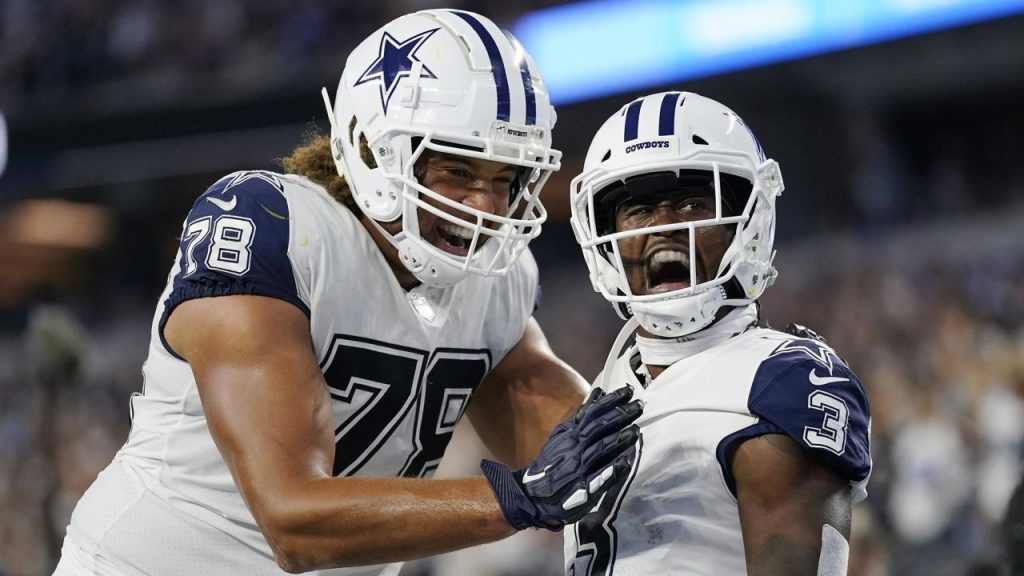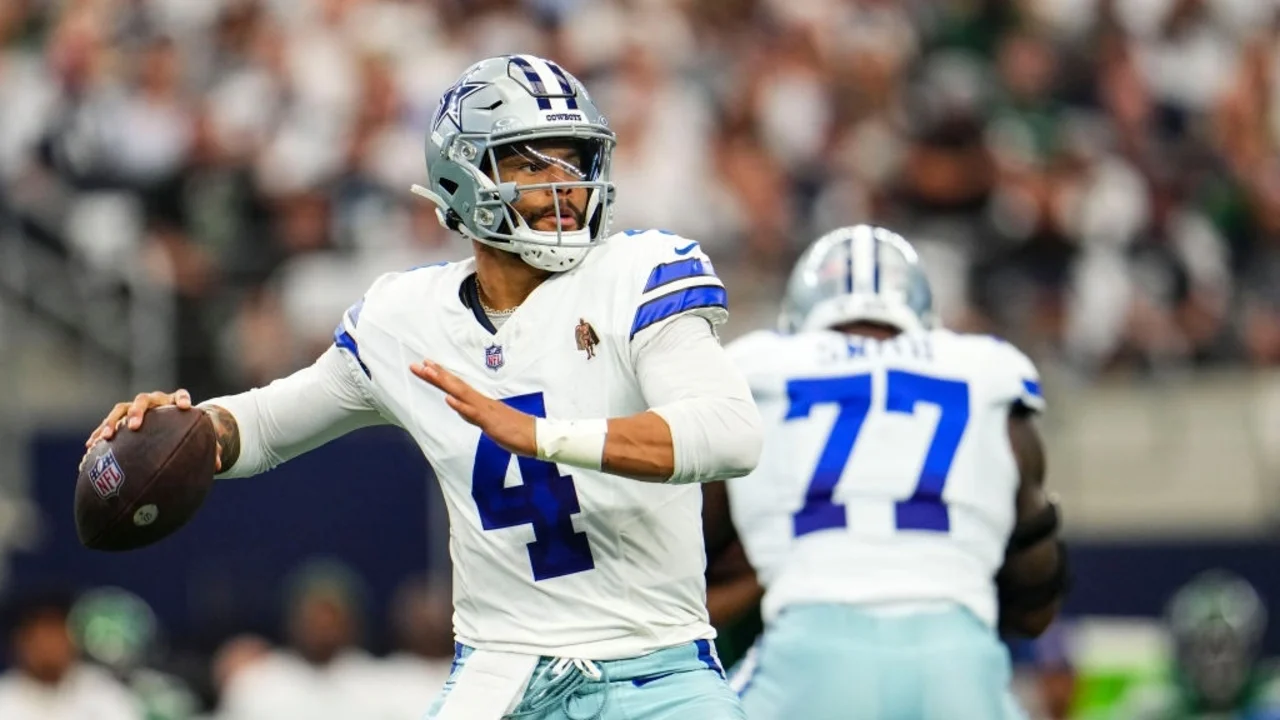The Dallas Cowboys emerged victorious over the Los Angeles Chargers with a final score of 20-17 on Monday Night Football, a game that unfolded in a rather conventional manner despite the initial anticipation for something more extraordinary.
The stage was set for a significant showdown. Dallas, having lost two of their last three games, struggled defensively following a humiliating loss to San Francisco. Their clash with offensive coordinator Kellen Moore, who departed when head coach Mike McCarthy sought to emphasize a more balanced run-pass approach, held a particular intrigue.

On the other side, the Chargers were on a mission to recover from an 0-2 start, albeit with only a fraction of a home-field advantage amidst a sea of Dallas cheers. Head coach Brandon Staley’s unconventional use of analytics, combined with the enigmatic talent of quarterback Justin Herbert, made their performance a subject of fascination.
The game, however, played out in a fairly unremarkable manner. The Chargers swiftly drove down the field for an early touchdown, which the Cowboys matched. The majority of the contest was characterized by a profusion of penalty flags with limited offensive fireworks until Dallas secured the victory with a late field goal and an interception.
What was anticipated as a spectacular showdown transformed into something rather pedestrian. It’s challenging to view either the Cowboys or the Chargers as significant contenders on the grand stage of the postseason, where teams consistently win high-stakes games and vie for Super Bowl glory.
Both teams faced issues with subpar play-calling and game management. They struggled with offensive lines under pressure throughout the night and leaned excessively on ineffective running games. Even their star quarterbacks faltered in crucial moments, with only one-star receiver contributing to their offensive output.
Tony Pollard managed just 30 yards on 15 carries, while Austin Ekeler could only muster 27 yards on 14 attempts. Both teams posted negative Expected Points Added (EPA) per play on early-down runs.
In a curious parallel, both teams embarked on extended drives that ultimately stalled, culminating in failed fourth-down attempts that defied the odds, according to analytics. Their defenses came to the rescue, securing three points on short fields.
Both teams turned the ball over once, and their time of possession was almost identical. They nearly mirrored each other’s penalties, accumulating 85 and 79 yards, respectively.
In essence, these two teams epitomized mediocrity, with the Cowboys edging slightly ahead in terms of efficiency. Dallas produced more significant plays, while Justin Herbert struggled with erratic passes throughout the game.
The Chargers now stand at 2-3 and face a challenging road ahead, including matchups against the Lions, Ravens, Bills, and Chiefs. Their margin for error remains slim, particularly against less talented opponents.
The Cowboys, on the other hand, head into their bye week with a 4-2 record and a bit more breathing room. Dak Prescott delivered a solid performance, but it remains to be seen if “pretty good” is sufficient for a team that initially harbored Super Bowl aspirations.
While Dallas’ defense appeared formidable on Monday night, it’s crucial to acknowledge that they faced lackluster offenses led by subpar quarterbacks in earlier games. They fell short against Arizona and San Francisco and barely managed to defeat a Chargers squad that currently struggles to secure a playoff spot.
While making the NFC playoffs seems probable for Dallas, their ultimate goal is much higher. The Chargers’ defensive statistics rank among the bottom in the league, particularly in run defense. If Dallas couldn’t capitalize on this and struggled to reach 20 points, the prospects against playoff-caliber defenses appear daunting.
The Monday night matchup was anticipated as a substantial road test for the Cowboys against a talented Chargers team. Yet, the game produced none of the expected outcomes: Dallas failed to unleash their offense, the Cowboys’ defense didn’t dominate, and the Chargers couldn’t quite prove themselves as Super Bowl contenders.
In the end, it’s apparent that neither of these teams currently warrants significant attention or fervent analysis. The Great Take-Off of 2023 left us with the realization that these teams may not be as consequential as originally believed, especially when the Super Bowl picture comes into focus.
